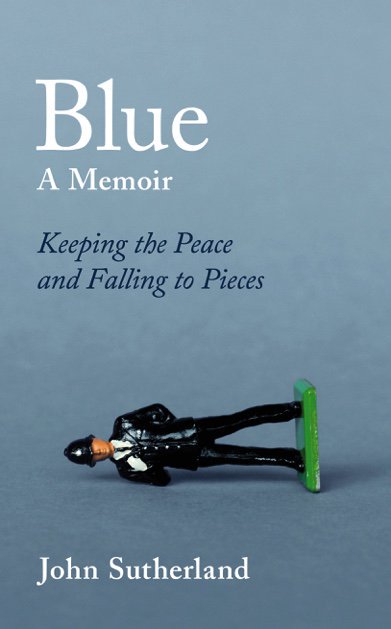Camden's former police commander warns officers are under pressure amid budget cuts
Police chief talks candidly about his personal breakdown in new memoir
Thursday, 25th May 2017 — By William McLennan

John Sutherland meeting newscaster Jon Snow during his time serving as Camden’s most senior police officer
CAMDEN’S former police commander has said officers are being put under greater pressure than ever before as they face up to the stresses of tackling crime and terror after years of budget cuts.
Chief Superintendent John Sutherland said that a combination of factors, including austerity measures and “global terrorism” of the like that struck Manchester on Monday night, meant that policing is “more challenging that at any point since the end of the Second World War”. He said: “I know more police officers operating under more strain now than I have ever known before.”
Chief Supt Sutherland’s time in charge in Camden features heavily in a book about his life, Blue: A Memoir, published today (Thursday). It details his “major breakdown and consequent battle with crippling depression” that struck in 2013 shortly after he left the borough. After a section questioning the costs of austerity on desperate Londoners – “the young woman trapped in an abusive relationship” and the teenager “wanting desperately to put the knife down” – he writes: “We can’t keep demanding more for less indifferently – there has to be a breaking point.” In the next paragraph he details the moment that “at forty-something years of age, twenty-something years into my policing life, I break.”
Chief Supt Sutherland, 47, told the New Journal yesterday: “The particular time I fell ill austerity was adding greater pressure where there was already plenty.” The Met’s annual budget was cut by £500million by former London Mayor Boris Johnson in 2012. He said that it was one of an accumulation of factors that built up over his years in the Met, including repeated exposure to traumatic events, such as dealing with the aftermath of the murders of Ben Kinsella and Milad Golmakani, and high-pressure jobs, like talking somebody down from a 17th-floor window ledge or negotiating with a man who had taken office workers hostage in Tottenham Court Road.
Of the difficulties facing police in London, Chief Supt Sutherland said: “It’s more challenging now than it’s been at any point in the past 70 years, that’s a combination of circumstances, of which economics is absolutely a part, but so is, most poignantly of all this week, global terrorism. So is the shifting patterns of crime. It could be the consequences of cutbacks in other frontline services – social care and mental health – and the sense that policing is picking up pieces that have been left elsewhere.”
Chief Supt Sutherland, who now has a desk job at Scotland Yard, said he began writing while on leave and found it to be “extraordinarily cathartic”. He praises the new Met commissioner Cressida Dick, who he said was extremely supportive throughout his illness. He said that while progress has been made, both society and the police still do not treat mental health on a par with physical health.
“I think part of beating the stigma is being completely open about it. I still take an anti-depressant every day and will do for as long as I need to,” he said, adding that the stresses of the job on officers’ wellbeing was not widely acknowledged. “I have felt and experienced it slightly more vividly than perhaps some do, but I’m not sure we as society properly understand the consequences to police officers of extreme trauma. The officers who plunged in in Manchester will have seen things and done things that are beyond the comprehension of most of us. I think sometimes we need to be more grateful for what they do.”
Police chief’s book reveals £90 cost to replace sink plug at Kentish Town police station

Chief Superintendent John Sutherland criticised “private sector hawks” charging inflated sums through procurement and maintenance contracts – pointing to four sink plugs at Kentish Town police station that cost £90 to replace. In his book, pictured, he writes: “We have a contract with a private sector supplier, as a consequence of which they seem to think it acceptable to charge whatever they like. In this case, a potential mark-up of somewhere in the region of 8,900 per cent.”
He told the New Journal: “In no world can it be acceptable to say that the thing you can buy at the local hardware store for a pound, you are obliged to pay £90 for. It’s just bonkers. You will find examples of it across the public sector where in effect we have probably been slightly naïve in our negotiation of these things, but equally there are some private sector hawks out there that haven’t been slow to take advantage. I think on occasions frankly it lacks conscience.”